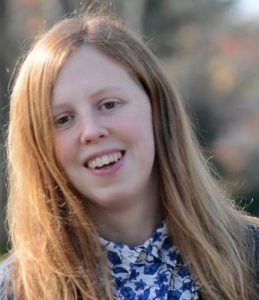I’m assuming that you and I have something in common. It’s probably something to do with writing, and I’ll risk a guess that it’s related to the frustration that can often come with the writing process. Sure, exams are stressful, and graduate school has introduced me to a whole new level of self-scrutiny and subsequent existential drama, but nothing causes me to clench my jaw or neglect to feed myself quite like a long and arduous writing task.
Riding high off a couple of successful papers and nearing the completion of my first thesis chapter, I volunteered to write an article for the newly launched Graduate Student Writers’ Community. I jotted down a few ideas and shifted my attention to other tasks, allowing just enough time for my momentum and conceit to prove that they are, indeed, fleeting. I sat down at my desk, reviewed my notes, and was briefly consumed by writer’s block and an acute awareness of other jobs waiting on the backburner. Well, now is the perfect time to test those writing tips that I scribbled down in a bout of apparent overconfidence.
Here’s the first tip: Create a title that is creative, specific, and catchy. The idea is to jumpstart the writing process in a way that is fun and not too challenging, with the desirable side effect of articulating your topic in a fun and creative way. What should naturally follow is the creation of an outline and abstract, and a consultation with your professor to get some feedback.
The scenario outlined above certainly sounds like the best case. But even with my very own writing tips sitting right in front of me, I’ve been finding myself staring at a blank screen, thinking about the lemon cake sitting in the department kitchenette, and wondering if my gut can handle another cup of coffee. Do I even like lemon cake?
It seems the issue at hand begins with an initial stumbling block that opens up a whole plethora of focus-related challenges. In situations like these, what can actually help are immediate, targeted strategies that work to channel your attention and help you feel diligent. A good place to start is by reading a few articles by writers whose style you like, taking a moment to think about how they begin their writing, and using it to inspire your own (thank you, Masha Gessen). Try to stick to this task without interruption for a full 30 minutes. If you just can’t get any words out, ask yourself, “What am I trying to say?” Jot the answer down, regardless of how sloppy, and then refine it. Use a thesaurus whenever you need.
A few paragraphs in and I am already beginning to feel like a wrung-out dishrag. There has got to be more to say on the subject, but it is becoming increasingly difficult to focus and my output is slowly declining in quality. Now is the time to utilize some strategies to help maintain focus.
 Generally, sensations that are soothing to the senses are useful. Making tea and drinking it as you read and write can help you to remain focused and in one place for as long as the tea is hot. And, recent research suggests that the polyphenols contained in green tea could contribute to the maintenance of a healthy brain.
Generally, sensations that are soothing to the senses are useful. Making tea and drinking it as you read and write can help you to remain focused and in one place for as long as the tea is hot. And, recent research suggests that the polyphenols contained in green tea could contribute to the maintenance of a healthy brain.
The human brain also loves music. Research suggests that there are parts of the brain that respond solely to sounds that we categorize as musical. If you’re one of the lucky people who can read and write while music plays in the background, it is worth taking advantage of that fact. Do you have a couple favourite albums that you like to listen to while reading or writing? Herbie Hancock’s Maiden Voyage has been on heavy rotation in my office these days.
Some people use scents to help focus. Please be considerate of those who may be sensitive to fragrance. I have recently had luck with burning palo santo, a type of wood used in traditional South American ceremonies and medicine, that has been shown to have anti-inflammatory properties. Maybe it helps to relieve the jaw clenching and related neck tension. Regardless, I recommend sticking to techniques that are calming and complementary to your writing environment.
So, what am I trying to say in this blog post? That I finished my writing, and that you can, too. It may be frustrating, but you’ve got some new ideas in your back pocket to help you stay focused. Now get ready to try them out, and go consult some of your favourite writers to get some inspiration.
Also, I checked the expiry date on the lemon cake in the kitchenette and strongly recommend steering clear of it.
Kate Ehle is a second year MA student in Slavic Studies, editor of the Department of Germanic and Slavic Studies’ graduate journal, Verges, and a drummer. She is a strong proponent for music, eating, and writing, as safe and healthy ways for understanding and interacting with people and the world.


